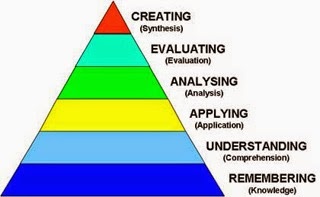
With the choice of subjects wider than ever, and with more jobs demanding higher qualifications than ever, online learning is rapidly growing in popularity.
However, now that it is being carefully considered by many prospective students as a way to access a new career, get a promotion or start a successful business, the question of whether online learning is truly the most efficient option has become increasingly important.
Different Subjects, Situations & Goals
The ultimate answer to the question of whether online learning is efficient depends, of course, on you, the subject you wish to study and your ultimate goals in learning.
But there are certain aspects of learning that can be considered in order to help you make the right decision.
It's clear that there are subjects that require lots of supervised, real-world practical work—like medicine and dentistry—so any kind of online learning for these would require much more advanced technology than is available today.
However, there are a lot of subjects that can be well-suited to a simple online learning environment. And this means that students can benefit from lower costs and fewer barriers to entry (large time commitments, travel distances, etc).
It's likely that subjects like web development and digital marketing can be efficient to study online, because you can put your new knowledge into practice immediately.
There are also differences in student types to consider. Do you already know something about the subject that you want to study? If so, you likely won't have as many questions as a complete newcomer to the subject would. So if the online course offers less opportunity for Q&A, this won't have a negative impact on your learning efficiency.
Personal learning preferences also, of course, play a role here. If having other students around you is helpful and motivating, offline learning may always be your best option. But if you work best in peaceful solitude and are very self-motivated, online learning may be most efficient.
Different Types of Learning
As well as the differences between subjects, we can also consider the different stages of learning involved in all subjects. Perhaps online learning is better at certain stages, while offline learning is most efficient at others.
This diagram of Bloom's taxonomy of learning illustrates the different learning stages:

The base level on the diagram above shows that the bulk of learning takes the form of discovering and consuming new knowledge.
This level of learning is likely well-suited to the internet. Vast amounts of information are available online, and we can spend hours reading through it.
However, all of the levels above 'Remembering' in the diagram above require more effort from the learner, more useful learning materials and more tutor support.
For example, 'Applying', 'Analysing', 'Evaluating' and 'Creating' will require increasingly challenging practical exercises (and increasing amounts of tutor support to help you tackle them).
And 'Understanding' requires that the student be able to ask lots of questions.
To go through each of these levels efficiently requires more than finding and consuming a large quantity of new information.
Any course, online or offline, should focus on the top 5 levels of learning shown in the diagram above, in order to help students to learn efficiently.
The Verdict
Online learning can be efficient if...
- you're studying a subject you already have some familiarity with
- you're studying a niche topic, perhaps related to computers and the web, that you can put to practical use immediately (for example, 'How to Use Facebook Ads' is more niche and practical than 'The Principles of Marketing')
- you are able to carve out plenty of quiet time each week to focus on learning
- the online learning materials have been specially created for the online learning environment
Online learning is less efficient when...
- you're brand new to a subject and have lots of extra questions that must be answered, in order to put your new knowledge into context
- you have many competing demands on your time, and/or no access to a quiet place to study
- the online learning materials are the same as the in-class learning materials, or only slightly adapted
So when choosing between an online course and an offline one, first take stock of your own familiarity with the subject and the availability of quiet study time in your schedule.
Next, make sure to thoroughly investigate the course materials. If looking at an online course, find out whether the materials were created specifically for it, and whether they contain suitably detailed practical exercises.
While asking these questions about the course materials, you can also find out how much time you'll be able to spend asking questions and discussing the material with the teacher and your fellow students.
When you have the answers to all of these questions for both your online and offline course options, it should be clear which would be the best choice for the most efficient learning.